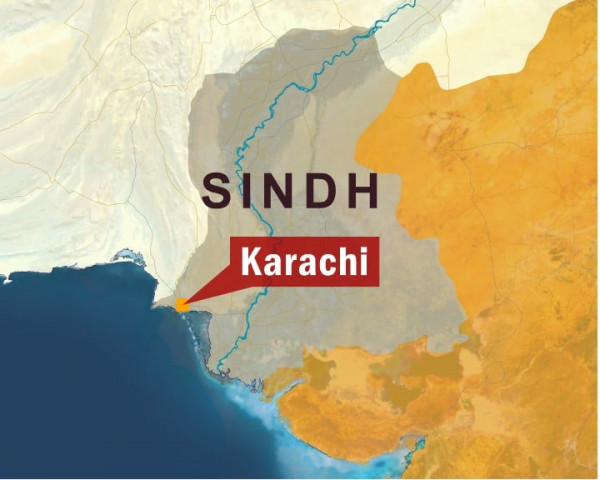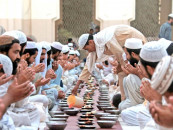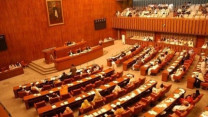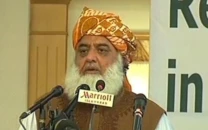Learning to speak their language, bridging divides

Learning to speak their language, bridging divides
“It’s a monkey named tota,” the children giggled, feeling that the parrot’s walk around the volunteer’s neck was quite like a monkey’s.
The parrot was part of a two-week summer camp that the Family Educational Services Foundation (FESF) completed at the SOS Children’s Village in Malir this July.
The camp was organised for the 175 children at the SOS village and 75 hearing-impaired children from the FESF’s Deaf Reach School.
This was the third year in which hearing impaired children were being included in the SOS Village’s summer camp. “People who are deaf should not be looked at as handicapped or disabled but as a cultural minority group that speaks a different language,” explained Mary Anita R Florijn, the director of FESF, “We are the ones who need to learn their language so that we can communicate and that is one of the goals of the camp, so that the deaf children feel included and empowered.”
From etiquette and grooming classes to career counselling and daily swimming lessons, the camp was an attempt to cater to summer fun and learning, explained Florijn. But there was the usual approach: horse-riding for the boys and flower arrangement for the girls.
However, many of the activities were organised and supervised by young volunteers. Fifty-five students aged between 16 and 23 were selected from a pool of 125 candidates. They were then put through a two-week training programme, under which they also studied basic Pakistan Sign Language.
The humidity-soaked heat, water problems and eight-hour work schedules for the volunteers, most of who were off for their summer holidays, could be quite exacting.
The same boys and girls who exasperated their parents were now wiping up after young children and ensuring that the work environment was clean. “My son never does this much work at home,” the proud mother of a volunteer told me at the camp’s closing ceremony.
“The smiles on the children’s faces are worth coming back for every year,” said Nazish Munir, an old volunteer who is studying at Mount Holyoke College, US.
Each child soon developed their own favourite activity. For 10-year-old Adeel Khan it was the little scooters they made out of wood. “They actually worked!” he exclaimed, adding that their trips outside the camp were also quite fun, especially when they went to Bar-B-Q Tonight.
Another child at the camp, Aqsa, talked about the west African drumming that one of the volunteers had taught them on World Day.
Mishal Halim, a volunteer studying at Mount Holyoke College explained that she had taken a west African drumming class at college. I was very excited that I was able to teach my girls the basic beat, she said. For Batool Nathani, another volunteer, the hardest thing about the camp was making sure that all 200 children could take back something from their experience.
Nathani enthused about the children’s energy. “Even if I didn’t know any sign language I would have been able to communicate with the deaf children simply because they were so eager to learn and have fun, they helped all the volunteers out.”
The children were divided into age specific groups to make the theme-based-activities and excursions more meaningful. A team of volunteers was assigned to each group.
Ozair Ali, a veteran volunteer who just graduated from the University of Pennsylvania, said the children absolutely adored the excursions.
This year they visited most of the city’s popular fun areas, including Arena, Go Aish and Dream World, the more educational ones such as WWF Wetlands Centre and Mohatta Palace and ones that combined learning with excitement such as a naval ship.
Kanza, who used to live at the SOS village and is now taking her exams for a nursing degree, said there is a marked difference in the confidence levels of children who attended the summer camp last year and those who was there for the first time.
The children can’t realise it right now but the camp experience is one which will add to their lives in unimaginable ways, she added.
reporting by hina jawaid
Published in The Express Tribune, August 7th, 2010.



















COMMENTS
Comments are moderated and generally will be posted if they are on-topic and not abusive.
For more information, please see our Comments FAQ